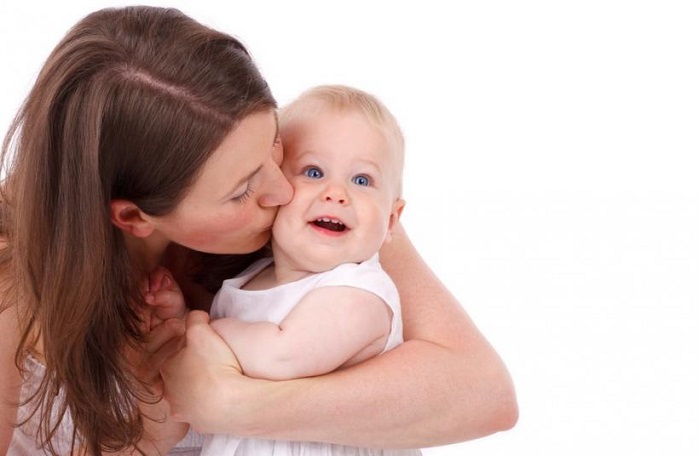In big and small ways, pro-life advocates across the country are helping mothers choose life for their unborn babies.
In South Dakota, Catholic Social Services provided 15 single moms with a monthly stipend and mentors to help them through college this year. In Ohio, Catholic Charities is providing counseling and support to birth mothers as well as adoptive and foster families. And in Missouri, pro-life Catholics run a halfway house for homeless pregnant mothers and children.
These charities, featured in a recent article in the Catholic newspaper Our Sunday Visitor, are just a sample of the many things pro-life advocates – both religious and secular – are doing daily to help mothers choose life for their babies.
And now that the U.S. Supreme Court has overturned Roe v. Wade and many states are banning abortions again, pro-lifers are working harder than ever to provide the resources and support to help families thrive.
“It’s not enough to be anti-abortion. If we’re going to be pro-life, it is critical that we recognize that the needs of these families are very real,” Jim Kinyon, executive director Catholic Social Services of the Diocese of Rapid City, South Dakota, told the newspaper.
Kinyon said he does see that happening, especially through the support of their Uplifting Parents program. In 2014, he said they received a huge, unsolicited donation to fund the program, which provides a $250 monthly stipend and mentoring services to single mothers in college.
HELP LIFENEWS SAVE BABIES FROM ABORTION! Please help LifeNews.com with a donation!
This year, he said the program helped 15 mothers with 34 children, and they hope to expand.
Here’s more from the report:
The program has been so successful that Kinyon would like to do something similar for women seeking certifications rather than degrees, offering help to those studying building trades like plumbers and electricians or those seeking jobs as licensed practical nurses or emergency medical technicians.
“Let’s face it, a $250 stipend is a drop in a bucket, but it helps,” Kinyon said. Then, when the women earn enough to be self-sufficient, “the state wins, the government wins, the taxpayers win, the families win, the employers win. They know how hard it is to go to school full-time and to be a parent. These women are winners. These are the kind of employees anyone would want to hire.”
Now that Roe is gone, adoptions also may increase. Sandra Fay, the adoption program director for Catholic Charities of the Diocese of Cleveland, Ohio, said their agency used to facilitate approximately 200 infant adoptions a year before Roe, and now they do an average of four to five. Meanwhile, she told the newspaper that they have a waiting list of 20 to 30 families.
Fay said they provide support services to birth mothers as well as children and adoptive families. And if a mother changes her mind and chooses to parent instead, she said they support her in that decision, too.
The Ohio agency also connects foster children with families and helps facilitate adoptions from foster care. Jennifer Smith, director of the foster care program, said they currently have waiting foster families without children, but they always are looking for more to serve.
In Missouri, Cindi Kopel, director of maternal and family programs for Catholic Charities of Southern Missouri, said one of the ways they help mothers in need is through LifeHouse, which provides shelter, food, counseling and education services to homeless pregnant women.
Kopel told Our Sunday Visitor that LifeHouse has celebrated the births of 113 babies since it began in 2013, and they currently are raising money to build a second maternity home in Cape Girardeau.
For struggling families who need support but have a place to live, she said they also run programs that provide material, educational and emotional support to mothers and fathers.
“They need to know that there is someone there to walk alongside them in this journey,” Kopel told the newspaper. “Many of these women have never had a job, they’ve never driven. … They often come in and describe themselves as broken. … To see them smile and be able to build relationships with the other women here and develop friendships — I’m so proud of them.”
Pro-life organizations are providing similar services all over the country.
Research by the Charlotte Lozier Institute found that pro-life pregnancy resource centers alone served about 2 million people in 2019, providing more than 730,000 pregnancy tests, nearly half a million ultrasounds, 1.3 million packs of diapers and more than 2 million baby outfits, all for free.
Their services typically include counseling and pregnancy tests, ultrasounds, parenting classes, maternity and baby clothes, diapers and car seats. Some also offer medical services including well-women exams and STD testing and treatment. Many offer post-abortion counseling as well.
Pro-life advocates also run maternity homes, medical facilities, scholarship programs, counseling services and much more. These programs give families hope, encouragement and the chance to overcome their struggles while becoming the mothers and fathers that their unborn babies need them to be.








